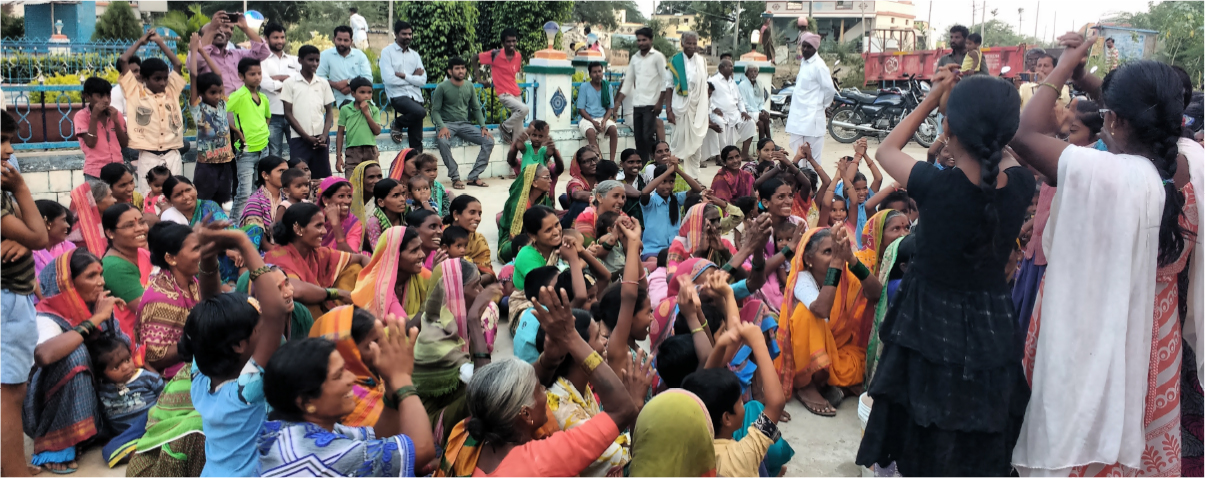
We hold clear conviction that people must be empowered and systematic change decentralised in order to sustain real transformation. Kalike focuses on strengthening community-based organisations across the board. To accomplish this, community strengthening is an inextricable aspect of all our thematic interventions. Kalike works closely with SDMCs, Balvikas Samithis, Gram Panchayats and similar bodies. In the reporting period, we bridged the gap and ensured maximum advantage of existing government bodies and frameworks for the individual as well as the community, at large. Let us examine two thematic interventions in particular.
Education
We facilitated intense sensitisation of Gram Panchayats in our intervention villages that guarantees access to available facilities and puts the onus in the hands of GPs. We initiated the formation of an SDMC forum connecting community with the government in terms of looking at the quality of education and infrastructure in our Education intervention. Capacity building, trainings and exposure visits were also organised for SDMC members. We engaged with them to understand the challenges faced and brainstormed innovative mitigation strategies to combat these obstacles. Meetings to strengthen the SDMC in support of primary education project co-ordinators, focussing on attendance, active participation and developmental work were accomplished.
WaSH
The implementation of this thematic area was largely made possible by village-level institutions such as VWSC and SDMCs. We empowered SDMCs to engage in Operation and Maintenance (O & M) through a trained workforce. Further, the role of School Health and Sanitation Committees (SHSC) in effective implementation of WaSH was essential to achieving the programmes objectives in schools. We formed SHSCs representing all grades in 60 schools, and constituted VWSCs in consultation with the GP to initiate an action plan that addressed pertinent issues and ensured implementation of WaSH at the community level. The team has worked on identifying villages and GPs to work on cluster-based interventions in 19 villages for basic data collection and analysis. They will also set up demonstration sites, while the cluster-based intervention idea will be further discussed with the programme’s advisor to include inputs for developing plans on water security and solid and liquid waste management (SLWM).
